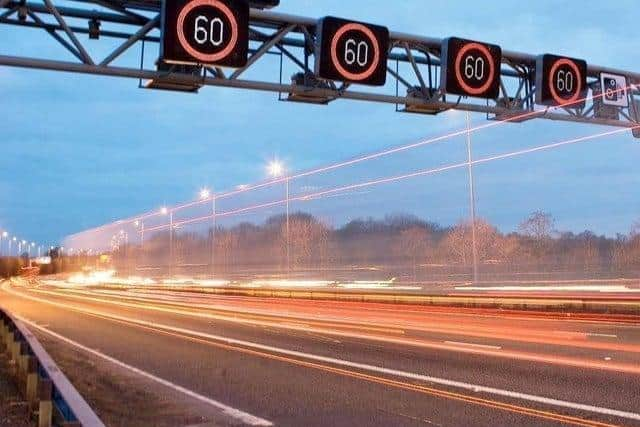More work needed to convince drivers over safety of smart motorways, says roads minister Baroness Vere
Giving evidence to the Commons’ Transport Select Committee on Wednesday, Baroness Vere said: “There is a gap. We have been working very hard to close it.
“I will say that we probably need to work a little harder on getting advocates and presenting the evidence.”
Advertisement
Hide AdAdvertisement
Hide AdThere are concerns about the safety of all lane running (ALR) smart motorways – which involve the hard shoulder being converted into a running lane – due to several fatal accidents involving stationary vehicles being hit from behind.


Jason Mercer and Alexandru Murgeanu died from “catastrophic” injuries when a heavy goods vehicle ploughed into their vehicles in the live lane of a smart motorway section of the M1 near Sheffield on June 7, 2019.
South Yorkshire Police and Crime Commissioner Dr Alan Billings has repeatedly criticised the smart motorway on the M1 which has no hard shoulder on that stretch, labelling it “inherently dangerous”.
Baroness Vere told the committee that it can be “very difficult” to “bring the public with us”, because road safety measures are becoming based on “data and digitisation” rather than physical interventions such as the central reservation.
Advertisement
Hide AdAdvertisement
Hide AdThis will include promoting the Motorway Incident Detection and Automatic Signalling (Midas) system, which involves sensors in the road detecting the movement of vehicles.
“There are many systems in there that make you safer,” Baroness Vere said. “You’ve got eyes in the sky, you’ve got eyes in the ground with the Midas system.
“You can see what is going on. You cannot do that on conventional motorways, it doesn’t happen.
In April, Highways England described smart motorways as “the safest roads in the country”, stating the number of fatalities per distance driven was a third higher on conventional motorways than ALR motorways.
It said 15 people were killed on motorways without a permanent hard shoulder in 2019, up from 11 in 2018.
